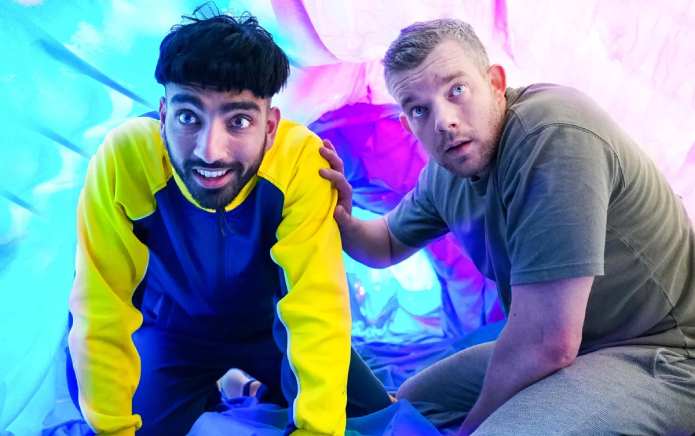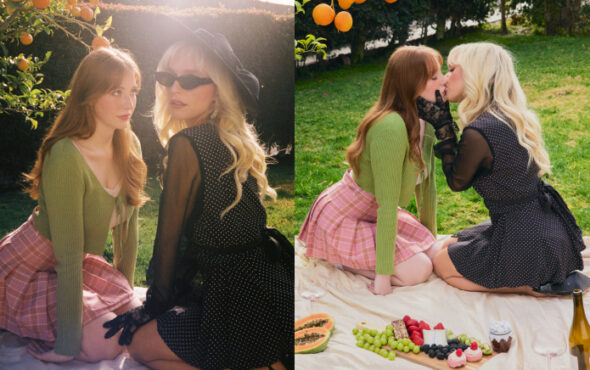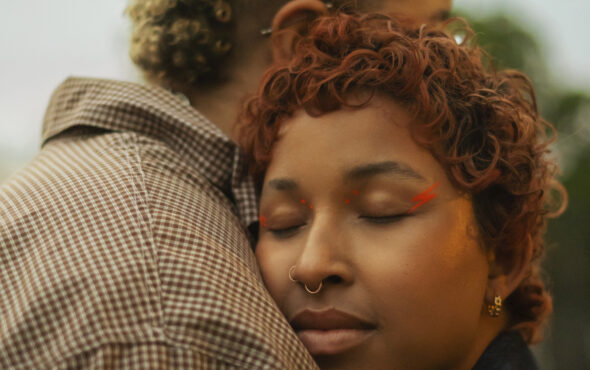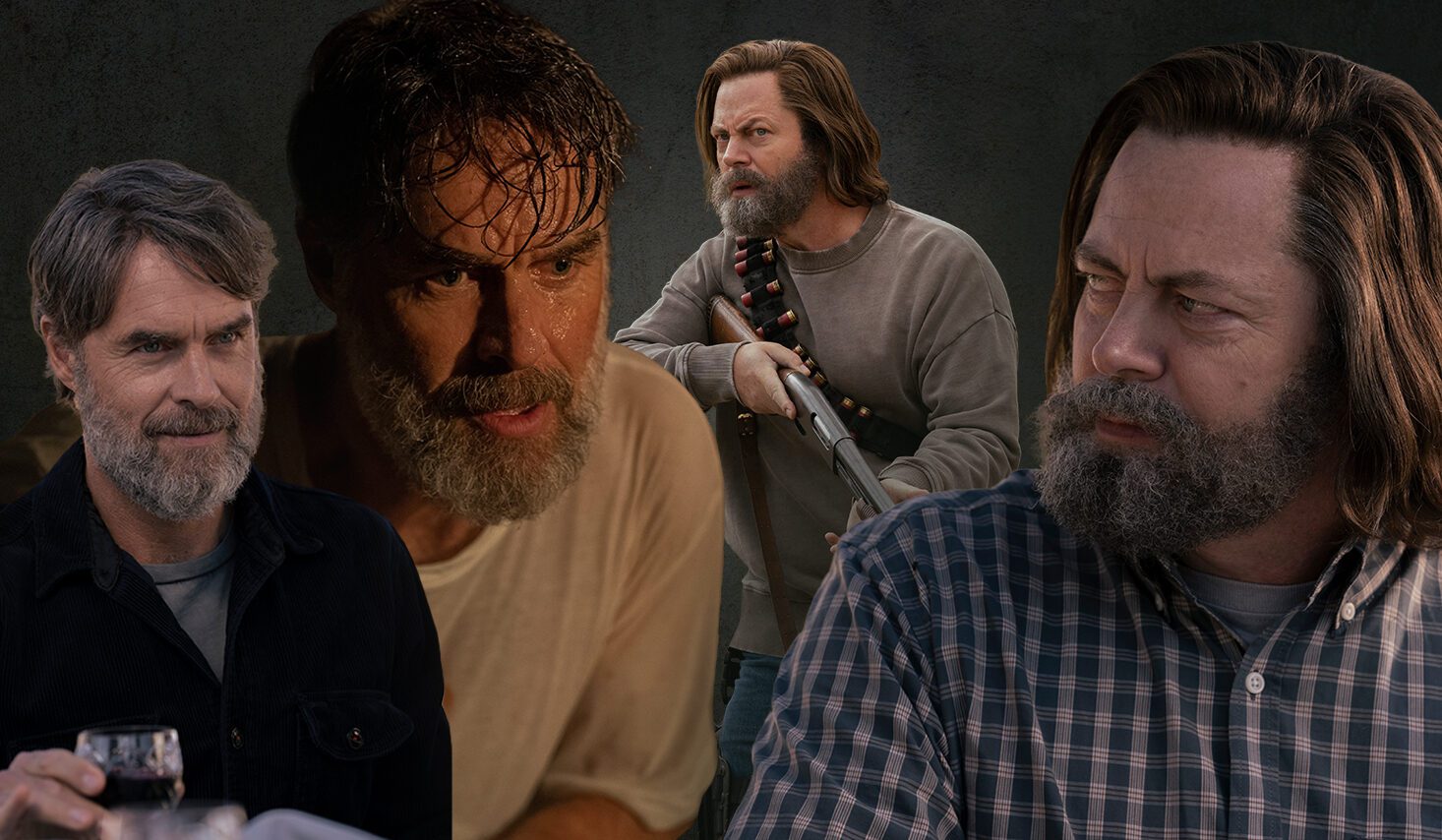
“I was never afraid before you showed up,” Bill tells his partner Frank in The Last Of Us. (Tears incoming.) It’s one of many tender, dewy-eyed scenes in the third episode of HBO’s lauded post-apocalyptic drama, which shifts focus from series protagonists Joel (Pedro Pascal) and Ellie (Bella Ramsey) to chronicle the love story between the paranoid survivalist and rugged artist, respectively played by Parks and Recreation’s Nick Offerman and The White Lotus’ Murray Bartlett. After two episodes of big-budget action sequences and a galore of mutated, zombified creatures – which led to longtime fans and critics hailing the series as “the most faithful” video game adaptation “in history” – episode three offers a welcome reprieve with a back-to-basics exploration of human connection. “It’s about two people finding each other,” says director Peter Hoar, “and it’s universal in so many ways.”
Written by Chernobyl’s Craig Mazin, who helms the series alongside the original game’s creator Neil Druckmann, ‘Long Long Time’ will go down in history as one of television’s most beautiful hours, and one that will – or should – blaze a new trail for queer characters in the hetero-dominated action and horror genres. “It’s beautifully surprising in that it’s sort of, from what I understand, unexpected in the genre. Not only that, it’s not a stereotypical queer relationship,” Murray Bartlett tells GAY TIMES. “The relationship itself is surprising and dismantles a lot of those stereotypes. It doesn’t even entertain the stereotypes. This is starting to sound grand – I do have a great love for this episode so it’s hard not to talk about it in grand terms sometimes – but I think in terms of queer relationships in film and TV, this is unique.”
Episode three opens with Joel and Ellie as they continue their cross-country journey to the Fireflies’ secret camp out west, where doctors hope to administer a Cordyceps vaccine with the latter’s DNA. Allies will be helpful, however, so they travel to the home of Bill and Frank, who Joel and (the now-deceased) Tess (Anna Torv) met years prior. Flashbacks reveal that Bill evaded authorities and quarantine zones to remain in his Lincoln home, where he used his survivalist skills to build a barrier from the ravaged wasteland and unwanted intruders. Four years later, a dishevelled Frank is captured by one of Bill’s traps, where an immediate romantic connection is forged after a spot of lunch and an intimate musical number to Long Long Time, Linda Ronstadt’s classic about loneliness and heartache, which the episode is named after. “Everything turns on Bill’s head when he meets the beautiful Murray Bartlett which, let’s be honest, if you’re going to fall in love with someone, why not make it Murray Bartlett?” laughs Hoar. “There’s an apocalypse, but it’s much more than that. It’s about these two people finding each other. It’s about that connection, that bond. Here was an opportunity to say, ‘This is what it was actually like for these two people to live through this atrocity,’ and yet, at the same time, it just happens to be two men.”
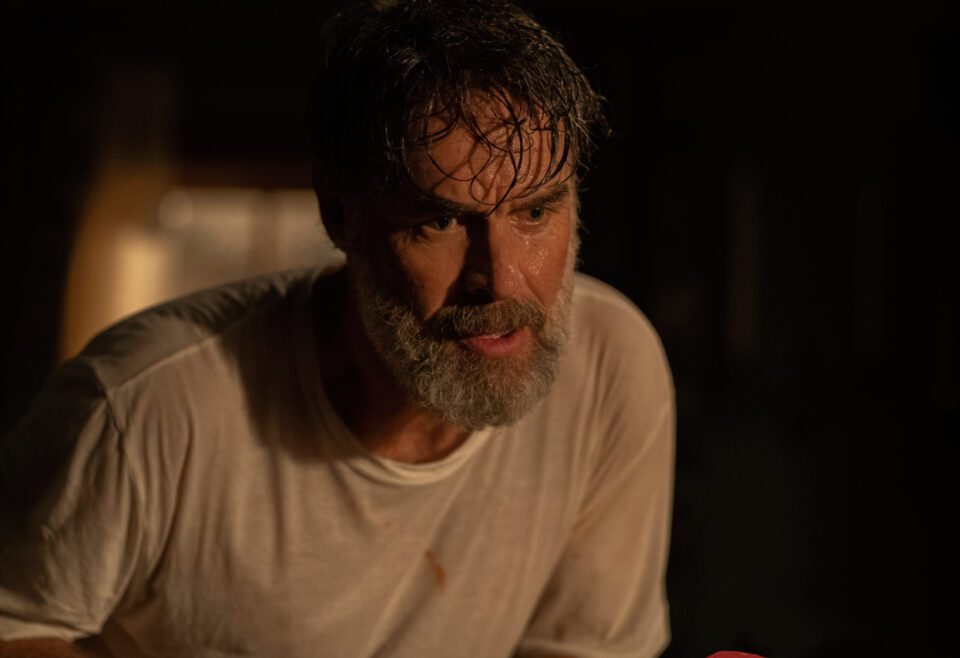
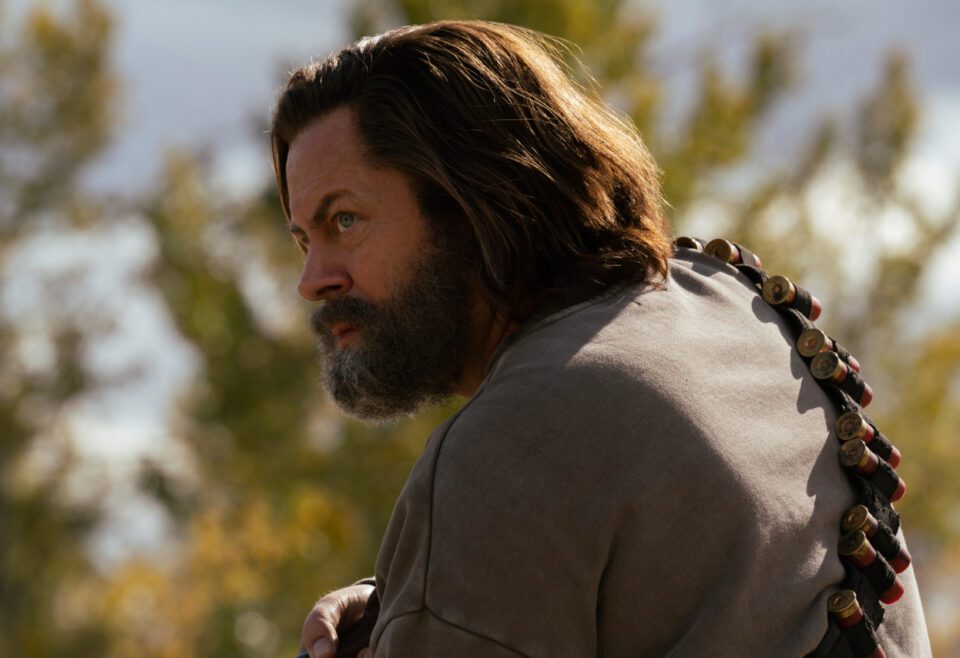
Authentic queer representation is – not that you need reminding – still scarce across all genres (cinema only just received its first major gay-rom with Bros), but particularly within action and horror. The Walking Dead, which also combines both genres with a post-apocalyptic wasteland and feral undead creatures, continuously failed its minuscule number of LGBTQ+ characters across 11 seasons. The Old Guard, Netflix’s 2020 action blockbuster with Charlize Theron, broke new ground with Marwan Kenzari and Luca Marinelli’s fierce same-sex couple, although their limited screentime wasn’t enough to make much of an impact on future blockbusters. Long Long Time serves as an antidote, of sorts, to what came before: Bill and Frank are front and centre; homophobia isn’t present within the narrative; and tired LGBTQ+ tropes don’t have a say here. Bill and Frank are as capable as their heterosexual counterparts at survival (maybe more so, hence their long and illustrious life), their sexualities aren’t defined and neither of them embark on a journey of self-discovery. Those stories are still important, of course, but in a world of Clickers and Bloaters and so forth, no one gives a damn.
“Is Bill a gay man? Is he just Bill? Does it matter? Do male relationships have to be defined in binary terms? Of course it doesn’t,” Hoar says of the episode’s progressive depiction of sexuality. Discussing how Offerman’s character can potentially influence the ideologies of non-LGBTQ+ viewers, he adds: “Maybe having somebody like that in a story like this appealing to the wider world is a great thing, because we can start to peel away those layers of complication that are forever thrust on the way men think they have to behave.” Over the course of his career, the famed director has helmed episodes of widely-acclaimed shows such as Daredevil, The Umbrella Academy, Doctor Who and the entirety of It’s A Sin, for which he won a BAFTA. After working in the industry for over two decades, however, Hoar says it’s no longer necessary for him to “tell stories about gays the way gays used to have stories told about them”, adding: “Although It’s a Sin was about shame, it worked because there was joy in it.”
In a similar vein to the Channel 4 series, Bill and Frank’s story radiates joy, from their musical rendition of Linda Ronstadt to their first sexual encounter, as well as their beautiful – and heartwrenching – final moments together. After a wheelchair-bound Frank asks Bill to euthanize him, Bill subverts the harmful trope of equating homosexuality with tragedy as he lethally doses both of their wine glasses, admitting that he has no desire to live in a world without his soulmate. “This isn’t the tragic suicide at the end of the play,” he says, and while tears will be shed over their joint suicide, misery and despair isn’t part of this story.
Being involved with such a trailblazing episode of television wasn’t lost on the cast, either. Bartlett, who previously collaborated with HBO on Sex and the City, Looking and The White Lotus, for which he won a Primetime Emmy Award, says everyone was “on the verge of tears” on the first day of set. As an actor and gay man, Bartlett tells GAY TIMES that it’s essential for him to “break through stereotypes and make people think about things in different way” through “redefining relationships and characters that allows us to see that we’re all connected.” In an action-packed, CGI-filled show such as The Last of Us, Bartlett praises how “humanity never gets lost, and these beautiful human stories get as much attention as all the bigger stuff”. At a London screening for the episode, he continued to explain of the cast and crew’s reverence for the story: “There was magic in the script and we felt an incredible responsibility to try and bring whatever magic we could to the magic that already existed. I know that Nick was really excited to play something very different to what he’s been asked to play before, which, seeing him, is incomprehensible because he’s perfectly cast. He’s a tough shell of a guy in a way, but also incredibly sensitive as a person and actor. There was this chemistry between us that happened very quickly.”
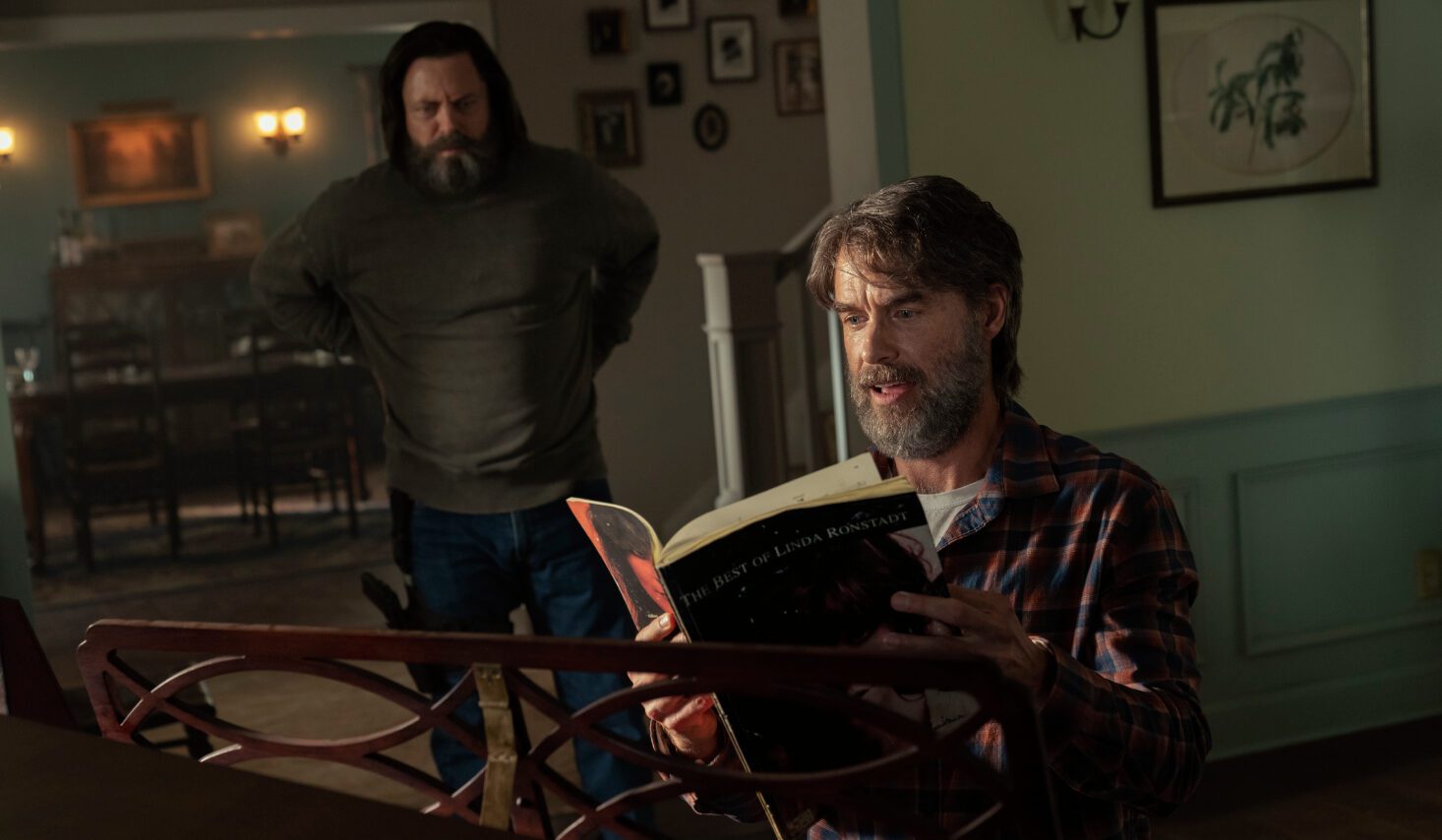
At the same screening, which was also attended by Hoar, cinematographer Eben Bolter highlighted how “meta” the piano scene was as a result of “Frank leading and guiding” Bill, which he said translated to Murray and Offerman’s off-screen chemistry. “I felt that in the real world as well, the piano scene in particular,” he said. “There was a fragility to Nick Offerman as an actor and he was doing something new. I seem to remember seeing his hand shaking between takes. He was so in it. That’s the character, but that’s also him. I think [Murray] was guiding him as a character and an actor.” Hoar said Offerman “cared so much” about honouring Bill, as well as a community that he doesn’t personally subscribe to. “He has such a heart. Everybody cared. We all read that script and thought, ‘This is special. Let’s not fuck up.’”
In his interview with GAY TIMES, Offerman shared insight as to why Bill was an important character for him to play at this point in his career: “I have a woodshop here in Los Angeles and right now we have five employees and four of them are women. We have a very diverse group in every way and the first woman who ran my shop was a powerful lesbian who was three times the worker I am. People often respond, because of the stereotype, ‘Oh, females using tools? That’s surprising,’ and that’s so dumb.” The Emmy-nominated star is – like the rest of us – “tired” of “old-fashion and gendered stereotypes” such as the belief that LGBTQ+ people don’t have the skillset to survive and thrive in a post-apocalyptic world. “So, anytime we can promote with our storytelling the idea that girls can swing a hammer and men can bake cookies and every possible combination and permutation, I love that. Hopefully, in action and horror, which are very populist genres, if we can continue to break down those walls, the better. That’s a much more medicinal way of doing what we do for a living than just telling or ripping good yarn.”
With characters of the LGBTQ+ experience such as Ellie, Bill and Frank – and in part two of the game, Dina – The Last of Us remains one of the queerest video games of all time; as a result, the franchise has garnered a fierce following of gay-mers. As it also falls under genres that are widely associated with masculinity and heteronormativity, however, the demographics for The Last of Us are wide-reaching. Hoar wants the gamers and viewers who aren’t accustomed to seeing positive queer narratives on-screen to “open their minds” in regards to “non-traditional” identities, and he says doing so within shows that aren’t explicitly marketed as ‘queer’ is a “clever way” to educate them. “Don’t be afraid to bring in those stories from left-field because if you make a gay show, people will expect it to be gay and they can easily say, ‘I’m not gonna watch that,’ until they find that they’re embarrassed because all of their friends are saying, ‘Watch this show, it’s really good.’ That’s where HBO, the prestige television thing, can come in because they’re expecting a horror, action, sci-fi thing, and they get a human story they didn’t expect. You can tell stories of queerness without telling stories of queerness, and show it to be real and full. I think that understanding masculinity in all its forms is rich, and I hope this episode changes things.”
The Last of Us continues exclusively on Sky Atlantic and streaming service NOW every Monday.
